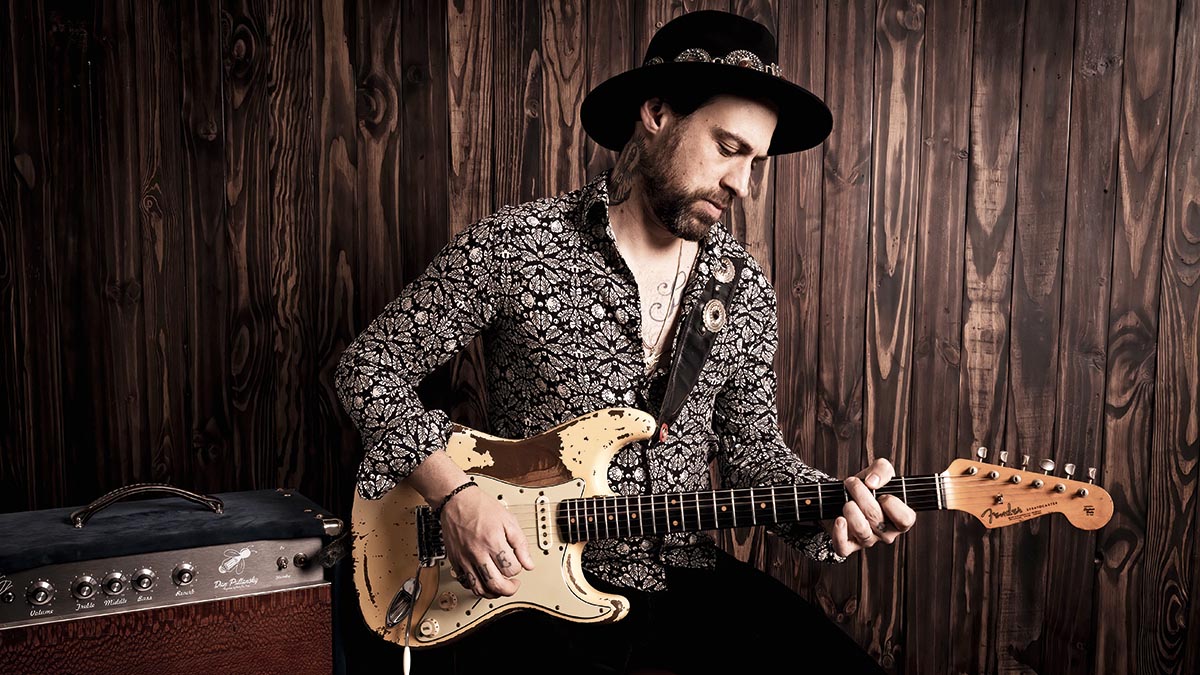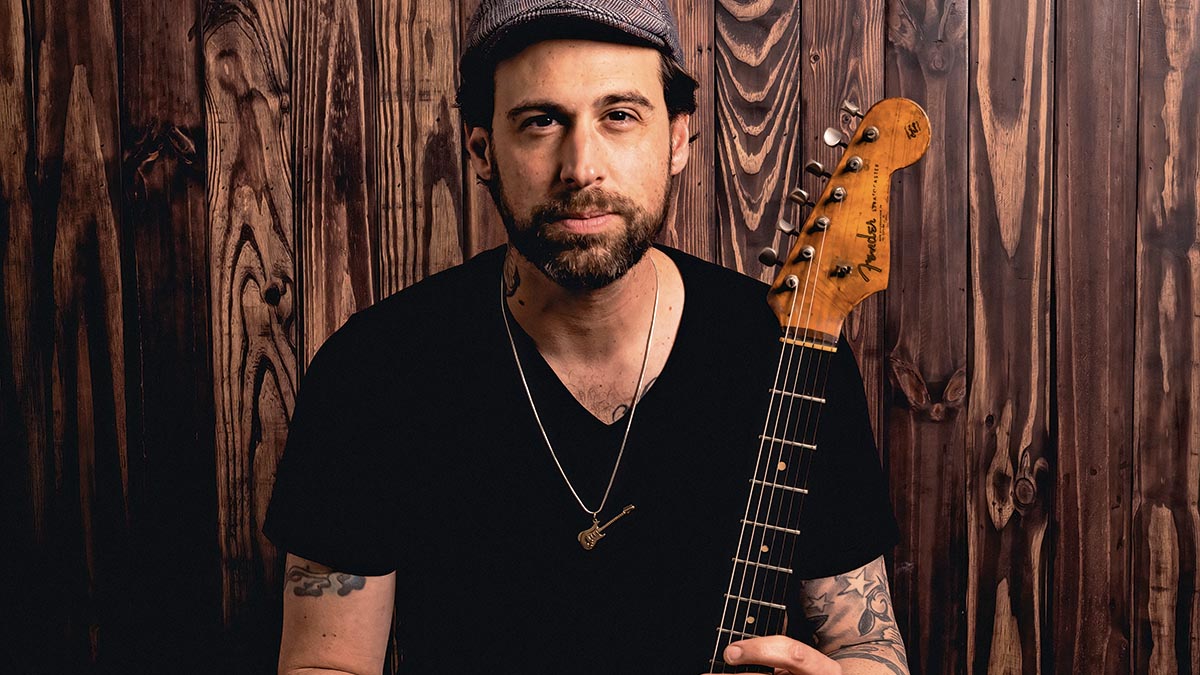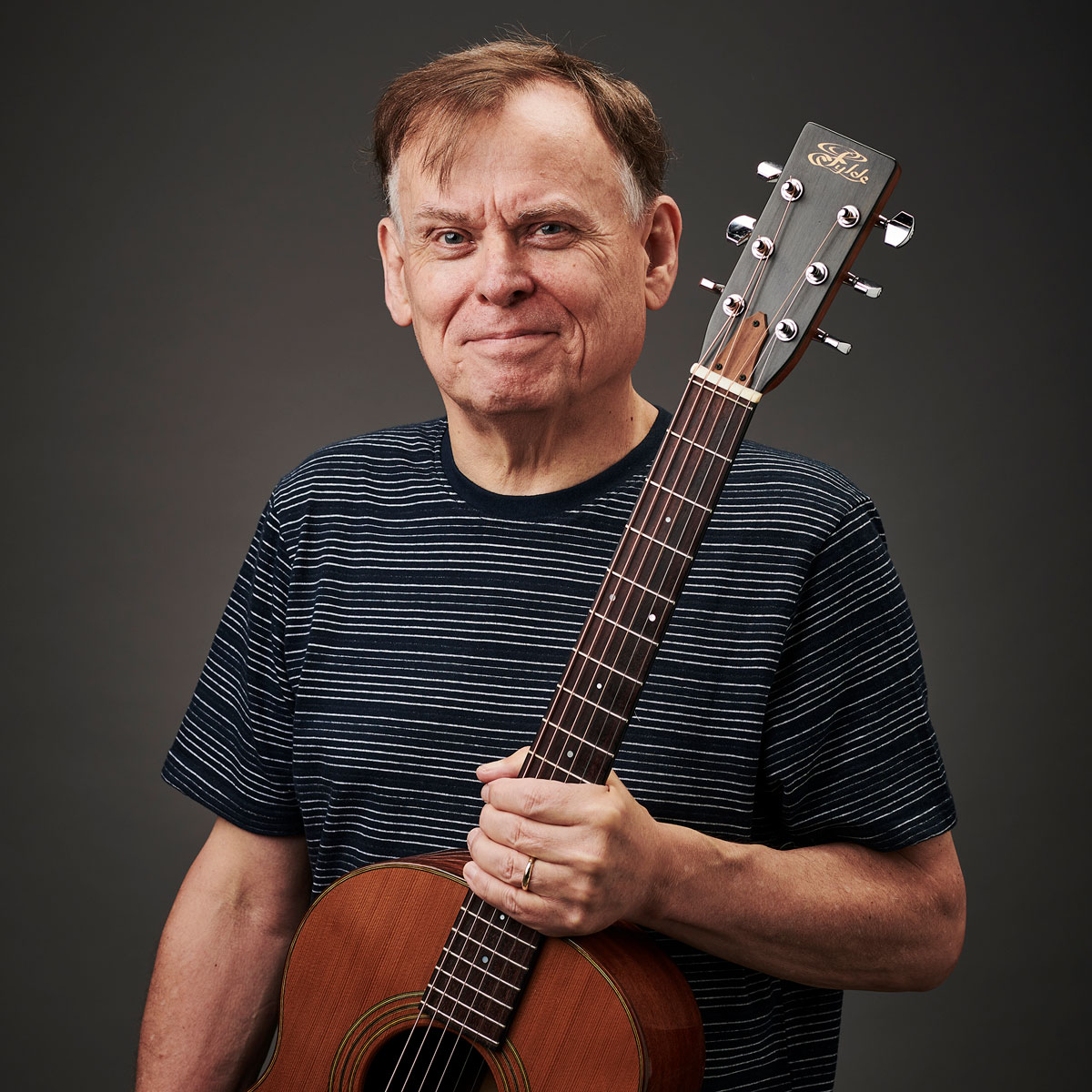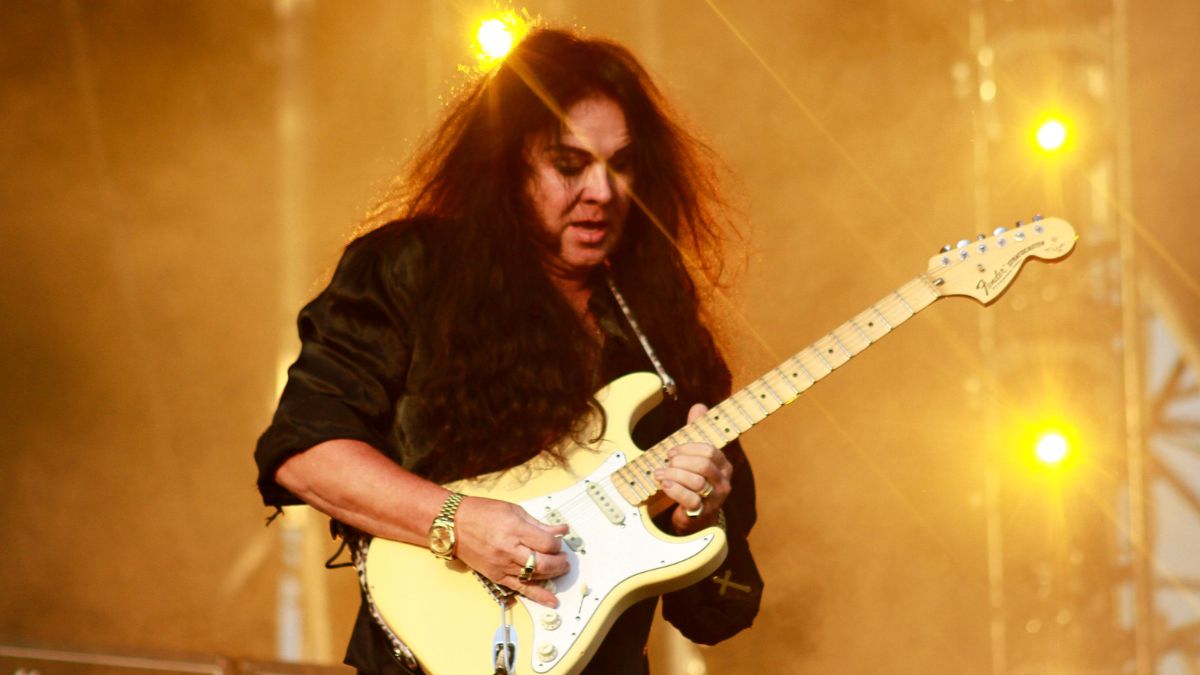Dan Patlansky: “I’ve hemorrhaged money on fuzzes. I probably could have retired on the money I’ve spent on them”
The South African rocker reveals a lifetime’s quest to find the perfect fuzz pedal and an incredible deal on a ’62 Strat

It’s set to be a busy 2022 for South African electric guitar titan Dan Patlansky, who returns this year with Shelter Of Bones – his first album since 2018’s Perfection Kills, and an effort that's been in the making since 2019.
A blues-rock aficionado at heart, Patlansky’s go-to six-string selection is typical of his genre: a Fender Stratocaster. It’s an unwavering relationship that began when he was just 13, and one that continues to this very day. From a ‘62 Strat to a Jason Smith Fender Masterbuilt, Patlansky’s picks throughout his career have been almost exclusively Fender.
Ahead of the release of Shelter Of Bones, Patlansky sat down with Guitarist to unpick his evergreen love for single coils, the ‘61 Fender Custom Shop Strat he regrets parting ways with and why you should always play a guitar before purchasing it.
What was the first serious guitar that you bought with your own money?
“I had a bar mitzvah when I was 13 years old and you obviously get a bit of bar mitzvah money that’s supposed to be for a deposit on a car when you come of age, or maybe some university money, but I managed to convince my father to release the money and I bought myself a Clapton signature Strat.
“It was my first proper guitar and it cost a chunk of money. It was in the '90s and it was Pewter with the Lace Sensor pickups in, and that was the first guitar I bought with my own money. It was one of the most special moments of my life!”
What was the last guitar you bought?
Get The Pick Newsletter
All the latest guitar news, interviews, lessons, reviews, deals and more, direct to your inbox!
“It was a [Fender] Jason Smith Masterbuilt. It was a guitar that I commissioned to replace the vintage guitars that I have because they were getting just a little bit troublesome on the road. The necks were moving around from venue to venue: if I was in the UK and I travelled from London to Brighton, I would have to do a complete neck relief adjustment because the strings would either be against the frets or I would have a slide guitar action.
“The necks were twisting and there was not enough rosewood left on the ’boards to refret – and I didn’t have papers for the Brazilian rosewood on the necks, and I almost got a guitar confiscated when I was going into Hamburg one time. So I contacted Fender and commissioned that guitar.”
My ’62 Strat was an incredible bargain. It was in the year 2000 from a vintage dealer here in South Africa and I’d pestered this guy since I was a teenager... he gave it to me for the equivalent of £1,000 in today’s money
What’s the most incredible find or bargain you’ve ever had when buying guitars?
“My ’62 Strat was an incredible bargain. It was in the year 2000 from a vintage dealer here in South Africa and I’d pestered this guy since I was a teenager and said, ‘Please, when you find [a vintage Strat], sell it to me at a reasonable price…’ And, eventually, I think because of my persistence, he called me one day and he said, ‘I’ve got a ’62 Strat here, it’s a refin,’ and he gave it to me for the equivalent of £1,000 in today’s money. Even for a refin that’s almost for free.”
What’s the strongest case of buyer’s remorse you’ve ever had when buying gear?
“Luckily enough, it wasn’t big ticket items like guitars themselves, but I think I’ve done a lot of that in the pedal world, especially when people are demoing things on YouTube – you don’t know what they’re doing in post [production]. They could retrack it all and add a bunch of magic in the mix and the pedal sounds glorious.
“You pay these exorbitant prices for pedals and you get them and often they’re quite disappointing, so I’ve got a graveyard of fuzzes in my studio. I’ve haemorrhaged money on fuzzes. There’s been so much buyer’s remorse; I probably could have retired on the money I’ve spent on them.”

Have you ever sold a guitar that you now intensely regret letting go?
“In 2005 I was living in New Orleans and I was involved in Hurricane Katrina and that ’62 Strat that I bought for £1,000 was with me on the tour. To cut a long story short, I had to leave the guitar behind when we evacuated. You had military guys with machine guns making sure you got out, and we had to pack food and supplies in the car and so we had to leave the guitar.
“When I got to where we were going, which was Alabama, I saw on the news what New Orleans looked like and I just assumed that my guitar was floating down the Mississippi somewhere and would never be seen again. So I went into a vintage guitar shop in Los Angeles and bought a [Fender] Custom Shop ’61 sunburst relic.
“It was a great guitar and I played it for close to a decade. Eventually, I sold it because I found a 1964 body – the real deal – and I didn’t have the money to buy it and so I sold the guitar. As great as the ’64 body is, I instantly regretted it because I’ve never had a relationship with a guitar that I had with that Custom Shop guitar.”
When was the last time you stopped to look in a guitar shop window and what were you staring at?
“The last time I did an actual live window shop was years ago when I was playing The Borderline in London and there was a vintage guitar shop on Denmark Street that had a fantastic ’59 Strat in the window. I forced myself not to go into the shop and play it, because I had my credit card in my pocket and my wife might have filed for divorce when I got back home!”
I just can’t imagine buying a guitar online because it’s such a gamble. So if you can go into a music store that’s got a bunch of stuff to try, that’s always the best way to do it
What’s your best guitar-buying tip?
“You know, I think we tend to be brand loyal and if we see Gibson or Fender or whatever on the headstock then we think it’s going to be great. But I think, even with the big guitar companies and even if it’s a particular model, you’ve got to play a bunch of them because they all have a life of their own, even if they’ve got the same exact spec on paper.
“I just can’t imagine buying a guitar online because it’s such a gamble. So if you can go into a music store that’s got a bunch of stuff to try, that’s always the best way to do it.”
If forced to make a choice, would you rather buy a really good guitar and a cheap amp or a cheap guitar and a top-notch amp?
“I’d probably go for the good guitar. I’m all about trying to get a tone because I find that if I can get a playable tone on stage then I play better. The playability of a guitar is important and so I’d have to go with the guitar itself, even though I think that the amp and speaker are a big part of it. But the guitar is the bond and if you’ve got that bond then you can really get away with murder on stage.”
If you could only use humbuckers or single coils for the rest of your career, which would it be and why?
“Single coils, definitely. I only own single-coil guitars and it’s not because I don’t like humbuckers, I think they’re great, but they suggest different things to play. You’ve got to play differently and approach it differently and I’ve always been lusting after a certain tone – and a single coil is definitely a main ingredient of that.”
Dan’s Go-To Gear
“My current rig is the [Fender] Jason Smith Masterbuilt, built after three of my Strats: the ’62 neck, the ’64 body and the colour of my ’97 reissue, which is Vintage White, being a big David Gilmour fan.
"My pedalboard is an RMC 10 wah-wah pedal, a King Tone Duellist, a King Tone silicon fuzz pedal, a Honey Bee Amps Clean Drive – which I never switch off, it’s like a very subtle drive pedal – and a Tech 21 Reverb.
“That goes into a Honey Bee Amps 40-watt amp, which is based on a Fender 6L6 clean sound, but it’s built to be more like SRV’s amp, and I’m running into a pair of vintage EVM speakers from the 80s – a smooth-sounding, slightly dark speaker. That’s the rig I’ll be bringing to the UK [for my tour].”
- Shelter Of Bones is available to preorder now ahead of its February 25 release.
With over 30 years’ experience writing for guitar magazines, including at one time occupying the role of editor for Guitarist and Guitar Techniques, David is also the best-selling author of a number of guitar books for Sanctuary Publishing, Music Sales, Mel Bay and Hal Leonard. As a player he has performed with blues sax legend Dick Heckstall-Smith, played rock ’n’ roll in Marty Wilde’s band, duetted with Martin Taylor and taken part in charity gigs backing Gary Moore, Bernie Marsden and Robbie McIntosh, among others. An avid composer of acoustic guitar instrumentals, he has released two acclaimed albums, Nocturnal and Arboretum.
“I loved working with David Gilmour… but that was an uneasy collaboration”: Pete Townshend admits he’s not a natural collaborator – even with bandmates and fellow guitar heroes
“This guy kept calling saying, ‘I’ve never been in a band before, but I’m the best guitarist ever.’ When I heard him play it was like a fire from heaven”: The life and times of Killing Joke visionary Geordie Walker – the guitar hero’s guitar hero








![[from left] George Harrison with his Gretsch Country Gentleman, Norman Harris of Norman's Rare Guitars holds a gold-top Les Paul, John Fogerty with his legendary 1969 Rickenbacker](https://cdn.mos.cms.futurecdn.net/TuH3nuhn9etqjdn5sy4ntW.jpg)


